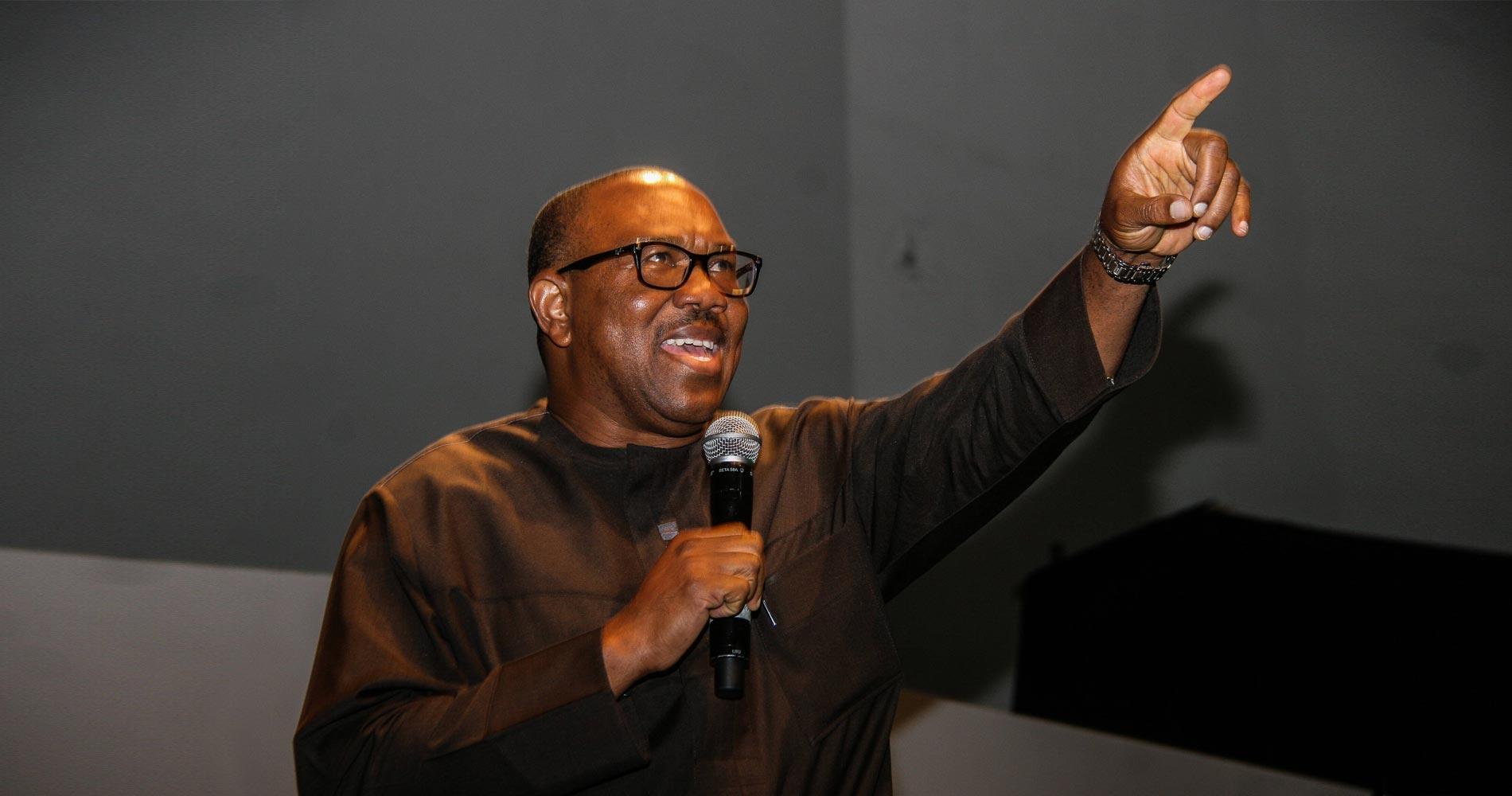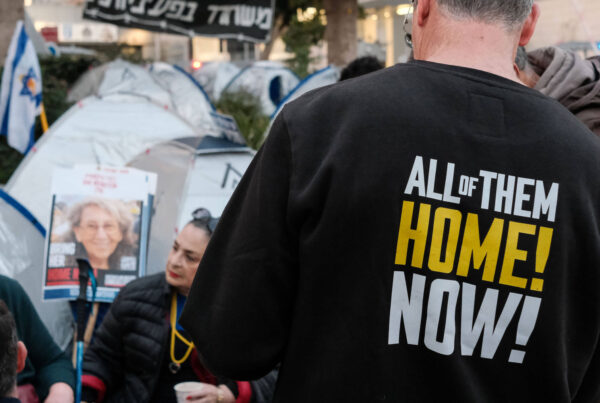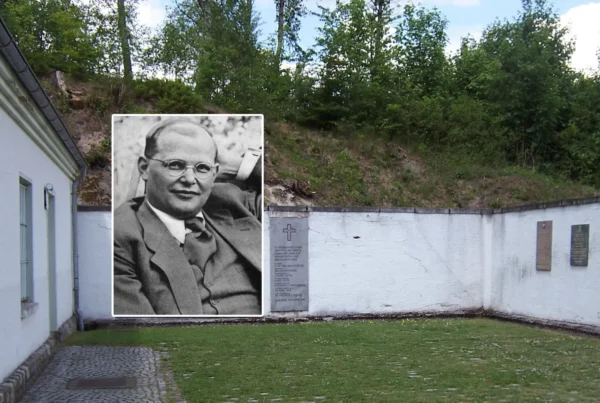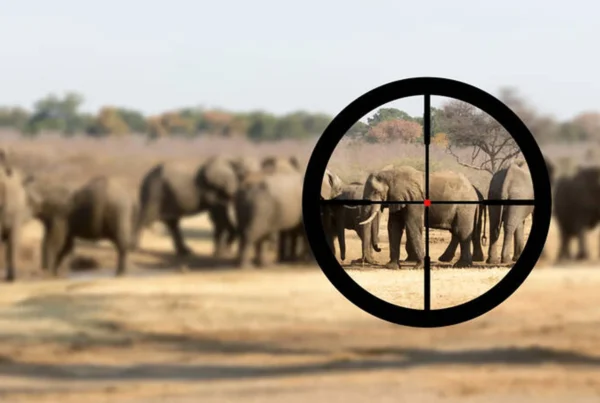The 2023 Nigerian presidential election will be held on 25 February 2023. Four main presidential candidates are campaigning. Peter Obi, a southern Christian, and his ‘Obidient’ movement is shaking up the political landscape promising frugality and accountability. Nigeria’s youth is flocking to ‘Obidient’. Obi is emerging as a credible and trustful candidate.
Verena Wehmeyer, 2 February 2023
In the spring of 2023, Nigeria’s incumbent president Muhammadu Buhari, a northern Muslim, will step down after almost 8 years in office. Presidential elections, and elections to the House of Representatives and the Senate will take place on the 25th of February 2023. Currently, four main presidential aspirants are campaigning for votes. One of them, Peter Obi, a southern Christian, for many emerges as a credible and trustful candidate. His ‘Obidient’ movement – driven by social media – is sweeping across the country and reshaping Nigerian politics.
With around 220 million people, Nigeria is not only Africa’s most populous nation and one of the largest democracies in the world, but also Africa’s biggest economy. The country became one of the founding members of the Organisation for African Unity, the predecessor of the African Union and is a key player within the “Economic Community of Western African States” (ECOWAS). Moreover, Nigeria has an enormous military power and plays a leading role as promoter of peace and stability in western Africa.
However, the country is split between the largely Christian south and the Muslim north. It faces multiple domestic-security challenges, in particular with the Biafra agitation in the Igbo region in the south-east and the militant Islamist group Boko Haram spreading terror in the north-east. The persistent armed conflict has displaced millions of people, followed by food insecurity and a humanitarian crisis. In this regard, the World Health Organisation states: “Displacement away from infrastructure leads to poor sanitation, water-borne diseases, and an increased risk of communicable diseases. The number of people in need of urgent assistance in north-east Nigeria rose to 10.6 million since the onset of the COVID-19 pandemic.”
Moreover, during Muhammadu Buhari’s term, income per head fell annually, inflation increased, the local currency depreciated, national debt rose to an all-time high in 2022 and corruption is omnipresent. Nowadays, the economic gap between Nigeria’s potential and the reality of what it is like for most Nigerians is vast. The average Nigerian, who is only 18 years old, is eager to change her/his life to the better. Many young people with enough financial means do not see their future in the country and make plans to emigrate.
Against this backdrop, young Nigerians especially, express their profound desire for radical change and good governance. Presidential candidates Bola Tinubu (70) from the “All Progressive Congress” (APC), Atiku Abubakar (76) from the “Peoples Democratic Party” (PDP), Rabiu Kwankwaso (66) from the “New Nigeria Peoples Party” (NNPP) and Peter Obi (61) from the “Labour Party” (LP) all emphasize aims to set targeted measures to stop the decline of the country.
For many, Peter Obi, who represents the usually deeply unpopular Labour Party, seems to be the saviour. He is seen as a democratic alternative to the two main parties APC and PDP, which have dominated politics since the end of miliary rule in 1999. Obi is seen as a charming, engaging and energetic “man of the people”, who is down to earth. In contrast to his older competitors, Obi is open to media interviews and very active on social media. Accordingly, his ‘Obidient’ movement is powered by social media. Using this medium, Obi has been able to reach out to millions of Nigerians with people under the age of 30 being his biggest group of followers.
Peter Obi was born in the southern Anambra State, where he completed his school education, before studying at several international schools in the US and the UK. Later, he started his career as a trader and held leadership positions in private companies. From 2006 to 2014, the former businessman served as governor of Anambra State. During his terms, he managed to improve the state finances and set targeted measures in education and healthcare. For his commitment as state governor, Obi received several awards and honours. In the presidential elections in 2019, he contested for Vice President as Atiku Abubakar’s vice-presidential nominee for the PDP. In March 2022, Obi announced he would contest the position of President of Nigeria as candidate of the PDP. As he continuously disapproved of the bribery and vote-buying of representatives within the party, he withdrew and joined the LP. As its aspirant presidential candidate, Peter Obi wants to run on competence, rule of law, and fight corruption. Nevertheless, as he has been implicated in the Pandora Papers using offshore accounts, the question whether he is “clean” himself arises.
In October 2022, Peter Obi released his “seven-point manifesto” for Nigeria’s national rebirth. On top of the agenda, he promises to fight security issues; ending kidnapping, banditry, terrorism and insurgency. By doing so, the presidential aspirant also plans to tackle the negative impact of insecurity on the economy, which he wishes to see transformed from a consumption to a production one. Furthermore, Obi wants to lead Nigeria into a Fourth Industrial Revolution by investing in new technologies. This aspect seems crucial to change the current trading pattern: even though Nigeria is Africa’s largest oil producer, it still imports refined oil. Therefore, the manifesto includes the promise to support the private sector to build and operate refineries, to invest in infrastructure, pipelines, transportation, etc. Moreover, Obi pledges to pull people out of poverty, and to invest in education and healthcare. Finally, Obi wants to restore Nigeria’s strategic relevance by strengthening foreign policy.
Although the ‘Obidient’ movement shakes up the political scene, Peter Obi’s chances to win the elections in February are limited. Not only does he need to win the popular vote, but also score 25% in 24 of the 36 states. For Obi – a southern Christian – it may be particularly hard to achieve this threshold in the majority Muslim North of Nigeria. Even though he followed the unwritten rule to pick a running mate from the other faith by choosing the Muslim Datti Baba-Ahmed, it seems impossible to transform the de-facto two-party-system. Also, opponents argue that the LP lacks the political structure to win elections. Even more, the LP has relatively few members and experience has shown that active political campaigners are crucial to win elections.
Regardless of his chances of winning the election, Obi has spiced up the political landscape and ushered Nigeria into a new political era, by moving millions of young Nigerians with the targeted use of social media. It remains to be seen whether the old way of doing politics and choosing presidential candidates based on ethnicity, religion and connection has been superseded by one based on character, capacity, competence, commitment and individual choice. In any case, Peter Obi promises to unite Nigerians and leave no one behind.







